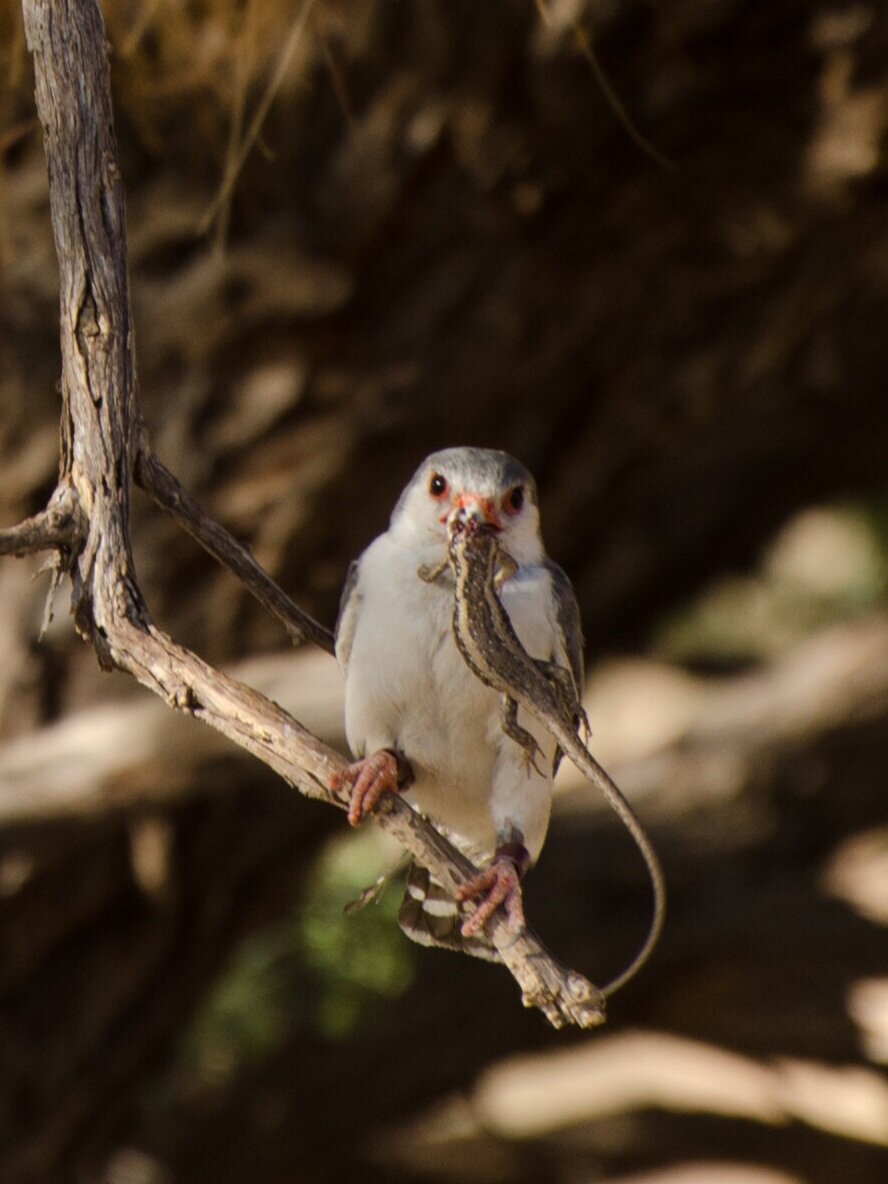

Skinks Avoid Danger by Eavesdropping on Bird Alarm Calls
The Kalahari tree skink gains a lot from associating with sociable weavers. These small birds build big communal nests that offer skinks increased opportunities for basking and foraging. However, weaver nests also house a major predator of skinks, the pygmy falcon. How do Kalahari tree skinks manage living next door to their predators? The answer appears to be by eavesdropping on their neighbors.
Read the whole story at my Animal Minds blog: Skinks Avoid Danger by Eavesdropping on Bird Alarm Calls.

Birds Hiss Like Snakes to Protect Nests
Certain cavity-nesting birds emit a surprising hiss-like vocalization to deter predators and repel competitors from trying to occupy the same nesting cavity. It’s been hypothesized that that this hiss mimics a snake hiss – but is it a case of mimicry or evidence of widespread fear of hisses?
Read my latest Animal Minds post: Birds Hiss Like Snakes to Protect Nests.

Delay of Gratification in Kids and Crows
One measure of self-control is the ability to delay gratification; namely, the ability to wait in order to obtain a more valuable outcome in the future over a less valuable immediate one. In children, the capacity to delay gratification develops between the ages of three and five years old. In a new study, researchers used a rotating tray apparatus that allowed them to test both three- to five-year-old children and New Caledonian crows.
Read my post about it on my Animal Minds blog: Delay of Gratification in Kids and Crows.

Eavesdropping Squirrels
Eastern gray squirrels listen in to birds’ conversations for cues about nearby predator risk, according to a new study from Oberlin College. Researchers found that hearing casual bird chatter after a predator call signals safety to squirrels.
Read more on my Animal Minds blog: Squirrels Eavesdrop on Bird Chatter as Sign of Safety.

Female Birds Sing, Too
Though understudied, female birdsong is relatively common, even in songbird species in north temperate regions. In a new study, researchers looked at why female eastern bluebirds sing -- to maintain and strengthen the bond with their mates.
Read my latest Animal Minds blog post: Why Do Female Birds Sing?
